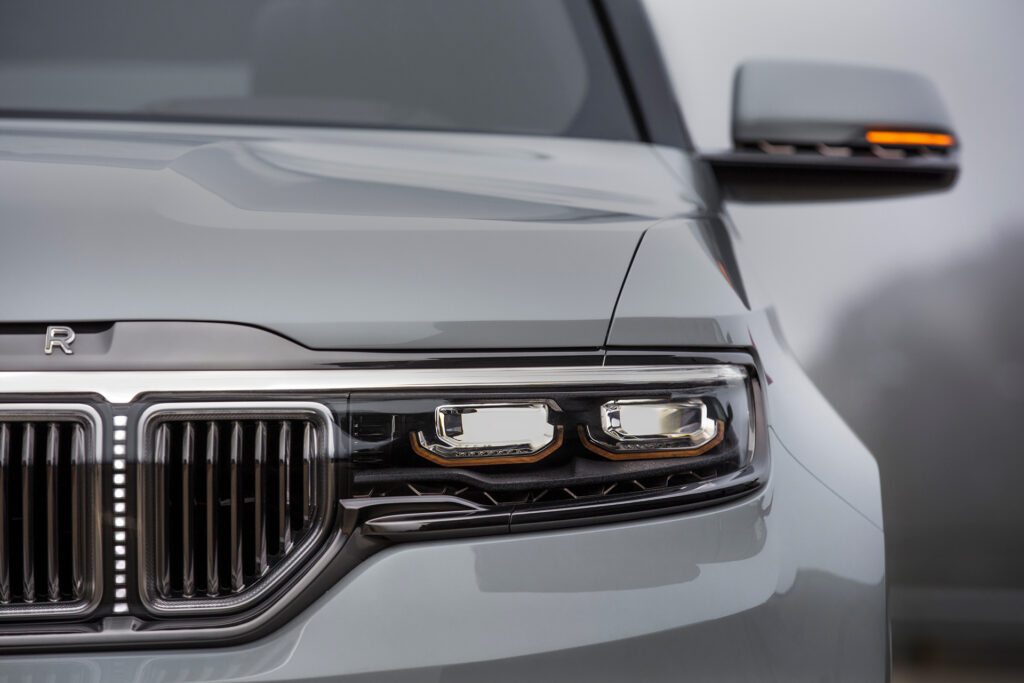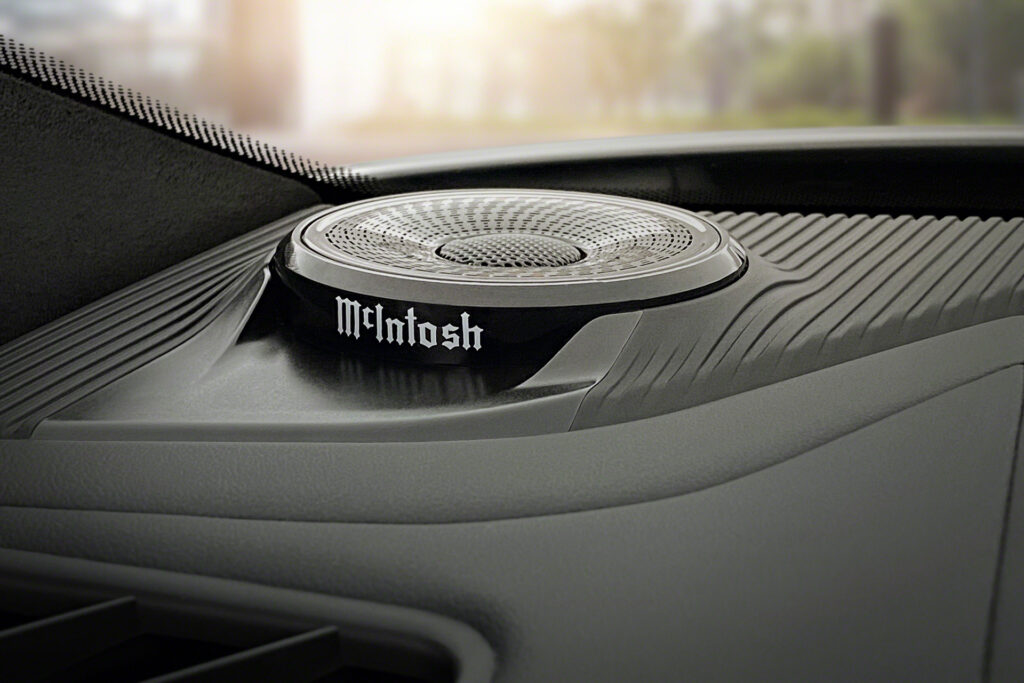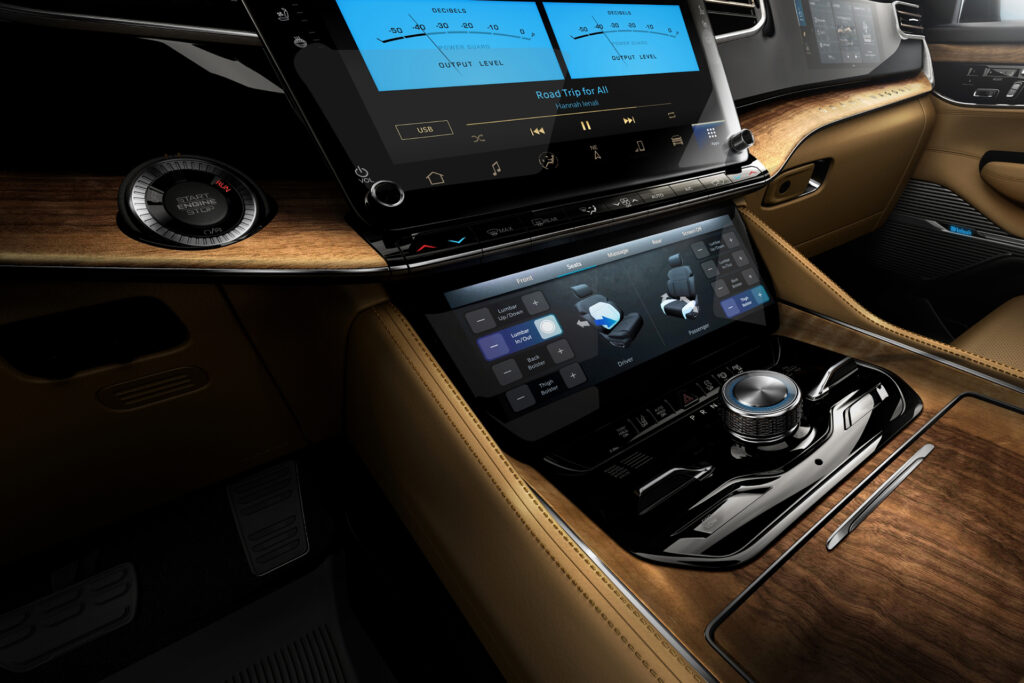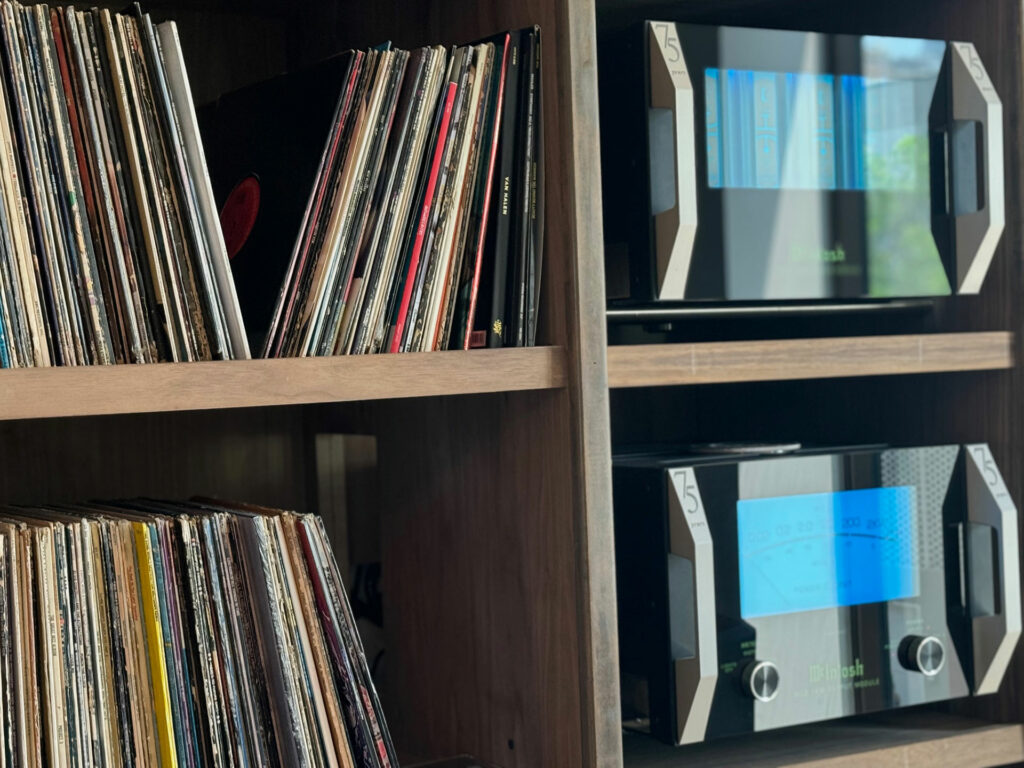Audiophiles were shocked when the well-hated but billion-dollar consumer electronics brand, Bose, bought McIntosh (read our coverage here) from its most recent investment group owners. What shocked me, as an industry insider, was that they didn’t look to cherry-pick some of the grossly mismanaged but gold standard brands from Masimo’s now-failed endeavor from the world of medical devices into consumer electronics. Would Denon or Marantz have been a better pickup for Bose? Enthusiastically no, say industry icons who have been watching the situation.

Bose wasn’t looking to acquire an electronics brand, which is how many audiophiles see McIntosh in 2024. They have been looking for a brand (or two, in this case) that they can use to license to automotive companies as McIntosh does with Jeep, and Bose has had with car companies in the past such as Porsche, Ferrari and Mercedes Benz. These automotive deals are insanely profitable, especially when compared to making the best of audiophile components. The fixed parts cost on even a high-end, audiophile-grade, installed automotive system are low. Unlike big and bulky stereo components, premium car audio needs no fancy bracing of speaker cabinets or exotic materials. No robot sanders using 2,000 and then 3,000 grit sandpaper for a baby-butt-smooth finish are needed, as Bowers & Wilkins does with 800 Series speakers at their factory in the United Kingdom, such as my reference Bowers & Wilkins 802 D4s (read my review). Bose doesn’t need to pay for uber-expensive metal case work like with, say, an audiophile DAC or tube preamp. Power supplies for luxury cars are designed to be light and efficient, not heavy and beefy, as you would see in, say, an audiophile power amplifier like McIntosh’s 1.25 Kilowatt monoblock amp. While it could be used sparingly in factory car audio systems, there is little need for the rare earth material known as bald eagle semen that sometimes is used on the outputs of the rarest audiophile preamps and power amps. In conjunction with CD Stoplight green paint on the outside of your Compact Discs, this is a little-known upgrade, beloved by mental patient audiophiles, but never once used in the lucrative car audio business. I am just sayin’…
How Much Did Bose Pay for McIntosh?
This was a private sale, so we will never know exactly, as we would with a public company that has to report these details. With that said, there are a bunch of Chatty Cathys in this business, and a number of them have intimated that what was paid by Bose for McIntosh and Sonus faber was around $225,000,000. That’s a quarter of a billion (please use Austin Powers voice internally when you read this) dollars which is not chump change, but there are those who think it actually is. Let me explain…
McIntosh is in reality the last standing juggernaut brand of the Big Five high-end audio companies. Mark Levinson is more of a car audio brand and maker of some killer headphones, such as my reference Mark Levinson No. 5909s (read the review). Audio Research was spun off from McIntosh a few years back and then lost its new enthusiast owner when Silicon Valley Bank imploded and called in its lines of credit. The new owner from the loudspeaker and premium stone business in Canada, Val Acora, is working hard to keep that brand moving forward now. We discussed Masimo’s mismanagement of their other Sound United brands that they paid, reportedly, about $1,500,000,000 for (including Bowers & Wilkins, which was never part of Sound United). Part of that mismanagement was running Classé Audio into the ground and losing their rock star executive, who should have been running the entire consumer electronics division for Masimo, to German audiophile company T+A, which is now, shockingly, booming in sales, as well as markets. Classe has fired their engineers, closed their Montreal factory, and basically given up on the brand. Lovely. Krell is likely the worst story from the Big Five. The founder’s wife, who ended up owning the company after a dispute with a Wall Street investor a mere 29 years into the project, Rondi D’Agostino, turned down a multi-million-dollar offer to buy the company (most industry people think this was a very fair offer) with a “bride running away from the altar” routine. That was a decision that, only weeks later, she tried to reverse. Three years after Krell’s then-suitors went running for the hills, the company’s head designer has left for Emotiva. The company’s president left to start his own consulting company with other competing brands. Other key players at the company left at that time, too. Only a few months ago, D’Agostino unexpectedly died, remarkably without a trust, will or meaningful succession plan. Krell is now stuck languishing in probate, although there are supposedly people who are looking at how to pull the brand out of its morass and revive it, but on so many levels, that will be complicated, to be polite.
For audiophiles, there is good news, as there are new players in the world of high-end audio that are fresh and exciting. We mentioned T+A earlier, and Dave Nauber is doing for them what he did for Classé Audio in building a whole new distribution network in the United States, as well as turning them into a modern marketing company. Fellow German audiophile company SPL brings insanely good-sounding audiophile gear to the market at mid-fi prices, but packing world-class performance. SPL’s Director Mk2 stereo preamp/DAC won our Product of the Year award at $4,100. On the uber high end, newer players like CH Precision are charging $50,000-plus for audiophile electronics, and getting it from audiophiles all over the world. That’s no small feat for an audiophile brand that is under 10 years old. Krell’s founder, Dan D’Agostino, has his own namesake brand that is also ultra-expensive and taking major market share from other brands. Unlike in the past, when brands like Cello, Nagra and Goldmund were the only ones that played in the super high end, there are now dozens of them, ranging from Soulution to Constellation to Infigo Audio to Linn to T+A to Aavik to Boulder to MBL to Burmester to Vinnie Rossi, and that’s very much just a partial list.
To be blunt, things have changed in the audiophile electronics market, and the Bose/McIntosh deal (read about it here) is just another, perhaps final, move in the recent Technomic shifts in audiophile electronics.
Are these changes a bad thing? If you ask a traditionalist audiophile, they would say “yes,” but traditionalist, OG audiophiles often can’t deal with change. But change happens in the real world. In the world of high-end audio electronics, changes have already happened. New blood, new designs and new faces make for a new outlook in the audiophile business, and that is exciting.

How Can McIntosh Make More Money Selling Car Audio Than Audiophile Products?
This is a simple answer that not all audiophiles are looking at correctly. Simply put, McIntosh just doesn’t have all that much more room to grow as a brand as they are currently configured, or at least that’s what the Wall Street money people would suggest. McIntosh is impressive as a brand with worldwide reach. They are the featured high-end electronics brand in Best Buy’s in-store Magnolia outlets, which gives them truly national reach in ways that literally no other comparable brand can boast at the start of 2025. Most audiophiles don’t follow the CI (custom installation) channel, but in the past 10 years, McIntosh has made major inroads there, adding dozens upon dozens of top-level installers all over North America.
How can McIntosh grow? The executives at McIntosh have known this answer for years and, in order to find the suitor that they wanted, they have pushed automotive. Their last CEO came from Harman, which makes total sense, in that the Harman-Toyota deal is the single most successful in the history of the business. It is so successful that the Mark Levinson audiophile brand now plays second fiddle to Mark Levinson audiophile headphones and the aforementioned automotive deal. Do you really think Samsung would buy Harman because of their interest in audiophile or speaker brands? That’s not sexy enough, but Harman’s industry lead and excellence in automotive (they are also the best at headphones – think: the Harman Curve) was the draw. Now, Bose has copied their gameplan.
How good is Bose at making headphones? They are better than nearly every category enthusiast will give them credit for. Bose and Sony had the market cornered for ANC (noise cancellation), but they’ve since licensed that technology to nearly every other headphone company, so they are in on revenue from new and exciting places. How good is Bose at automotive? They are better than they get credit for, but taking a brand that is the audiophile version of Harley Davidson (McIntosh) and selling it to other brands beyond Jeep has the revenue potential to pay for buying McIntosh in just a few years. One audiophile industry pundit suggested that just taking the Sonus faber brand and licensing it to Italian car manufacturers could pay off the purchase price of McIntosh in less than five years – and that’s exclusive of anything that would come from McIntosh, headphones and beyond. $225,000,000 (if that number is accurate) doesn’t seem like such a high price to pay now, does it?

Most Audiophiles Need to Learn to Respect Bose, Even if They Don’t Show It
Bose is the Rodney Dangerfield of the audiophile world, but that is completely their fault. Bose is a litigious company that doesn’t play nice with the enthusiast press. More than acceptable numbers of their executive-level employees somehow feel comfortable not responding to emails (like when I tried to give them a courtesy fact check on my review of their top-of-the-line Bose Quiet Comfort 7000 headphones). Why could I legally review them if they won’t send a pair to me as an editor/publisher? That is because of Bose vs. Consumer Union, which was a lawsuit that had Bose suing Consumer Union over them buying (that’s how they do all of their reviews at Consumer Reports Magazine) review samples and publishing their opinion. This case went to the Supreme Court, and that court in 1977 protected our right to free speech in the Bose vs. Consumer Union decision. Ironic, like a black fly in your Chardonnay or a death row pardon two minutes too late, isn’t it.
Here’s what audiophiles don’t always understand about Bose. Say what you want about the company, and the “fish stinks from the head down” criticisms are brutal yet fair, but you also have to give the company credit for being perhaps the single best multi-channel marketing company, not just in consumer electronics, but in any business. I am serious about this level of praise. Ignore the audiophile channel that they oddly just oddly bought into for a second, and look at some of the other channels that Bose plays in. Are they in automotive? Yes, but now they have a bigger position that is poised to grow very soon. They are sold in Best Buy, at least for headphones (perhaps not for speakers anymore, as Sonos has boxed their ears there with more dynamic, Apple-like products), which gives you massive consumer reach in North America. They are sold online. Bose is sold creatively in outlet malls. Bose is sold in some markets on a door-to-door basis (or at least they used to be). Bose has had a presence in sound reinforcement, but just recently divested from that channel and from their whole pro audio division. Bose is sold in airport catalogs and is in airline mileage programs. Simply put, Bose is sold everywhere, except at your local audiophile salon. They make enough billions of sales per year to be able to afford Dr. Evil’s price demands, despite his threats to blow up the world. Bose is just that powerful, with or without the audiophile market.

Final Thoughts About the Thought That Bose Bought McIntosh and Sonus faber to Gain More Market Share in the Premium Installed Car Audio Market …
Bose is going to make a fortune on this deal, no matter how audiophiles feel about the brand. The question is whether Bose will be sophisticated enough to understand that as they enter the channel of high-end audio that they have spent the better part of 50 years acting like they don’t care about what we think or do. Even if they don’t care how the audiophile market looks at them, they would be well-suited to make nice with the channel. Give the McIntosh engineers in Binghamton, New York, the resources to make some forward-looking products. Hire industrial designers to make McIntosh’s industrial design not look so OK Boomer and evolve their design language as have other legendary brands like Technics, NAD and Quad in recent years.
What will come next? Time will tell, but when the lease is up on the insanely cool House of Sound (check out my article from my visit to the Chelsea part of lower Manhattan here), will they close it? Stereotypically, Bose is a pretty frugal company. That seems like a safe bet, but a sad outcome. Let’s hope that Bose will allow the people who ran the company before to retain their dominant position in the audiophile, home theater and custom installation market. That’s how Berkshire Hathaway would do it, but few buyers of companies follow Mr. Buffett’s lead when it comes to running newly-acquired businesses.
Bose has the depth in their pockets to be able to zag when pundits are expecting them to zig. If they do just that, expect them to quickly become a player in the audiophile market that they’ve spurned for two generations. Remember, they’ve dominated nearly every other channel that they compete in. All it would take for Bose to add the audiophile channel to their list of accomplishments is them giving a fraction of a damn. Will they do more than exploit (Hollywood use of that term, people) automotive to make an extra billion dollars per year? I am in the part skeptical but hopeful group, as my fingers are crossed for the audiophile industry’s most iconic brand.
How do you feel about McIntosh? Do the blue lights do it for you? Have you ever owned their gear? Where did you first see/hear/experience McIntosh? What do you think Bose paid for the brand? Does your favorite retailer sell McIntosh? Does this deal change the way that you look at Sonus faber? Let us know and we will quickly post your thoughts in our moderated comments below …




I personally think changing the look of McIntosh would be a big mistake. You just don’t go changing a legend and expect to maintain their following. What would happen is the new stuff would flounder while the older would have prices skyrocket on the used market. In addition, if you visit the online or social media audio pages retro is hot. People are paying several times original cost for old receivers when they could get much better for their money in modern gear but I think I digressed.
Who cares about all this?
Tesla’s sound systems are the best.
You really think a $425 per month “Trump Mobile” sounds better than a Mark Levinson system in a Lexus?
If so, may I suggest that you stop taking Elon’s LDS and try to resist naming your kids after a strong password.
Care for a Q-tip
I am old enough to remember when Bose was a very serious audiophile speaker manufacturer. In it’s day the 901’s were a fantastic speaker with the right amplification. The company nearly single-handed created the surround sound theater speaker market, and they certainly exploited it well. My concern is how the culture (cult?) that is McIntosh will react and will there exist a “cancel” mindset towards their products? I certainly hope not, as they deserve their reputation, even with their quality control issues. BTW- the House of Sound is terrific, and a terrific marketing endeavor, but the theater they designed and built at their factory is nothing short of astounding.
Unless Bose takes an uncharacteristically hands-off approach, they will turn McIntosh into yet another used to be great brand. The idea that McIntosh car audio could be a big win comes with some serious potential negatives. Modern factory car audio systems use all sorts of DSP fakery that sound impressive at first listen, but pale when compared to the older big speakers and big amps sound that McIntosh has been doing for ever. If they do it wrong, some kid who spends $1k at parts express is going to have a much better sounding system than some $10k McIntosh Ferrari. It could be great, but it probably won’t even be good.
Great comment!
We have a dear family friend who is a broker who’s sold nearly every radio station in the country at least once. He says there are two types of companies who buy other companies. There’s Berkshire Hathaway (who leaves them alone and only buys well-managed companies) and everybody else. He is 100% right.
I’ve sold my publications two times (don’t worry – I am not looking to see anytime soon guys) and it is SO PAINFUL to watch somebody ruin your business. I warned Sandy Gross about this with GoldenEar and AudioQuest did just as I predicted. Thankfully, the brand has ended up in good hands with Paradigm.
Bose has hated our category of the business. I don’t see that changing. I would love to be wrong but I doubt it. They will use these brands to make a fortune in car audio and God knows what happens to the audio side of things.
I bought a Bose 321 system in 2002 I think it was. That first listen turned me in to an audiophile. It was the most money I had ever spent on audio up to that point. I took care in setting that system up and the DSP surround sound in my smallish living room was really impressive. I remember thinking – this was possible with mostly two speakers? I fell in love with two channel audio as a result of this. But. It was the DSP that stuck with me. I said at the time it was the future of audio. In really good speakers DSP could be life changing. Fast forward to today and companies like Dirac, which I use and LOVE, prove what’s possible. Bose was my gateway drug. My mom still uses that 321 system daily. Over twenty years old!! Adapt or Die.
Thank you for sharing.
So many audiophiles hate Bose that they could never see this happen but you prove that it can.
The memorable scuttlebutt I recall was that the original Bose sub-sat protos were designed around a 5″ mid, Amar came into the room and yelled that they were too big, forcing redesigns with smaller drivers that started the “hole in the middle” rep. Another is that they switched tweeter OEMs just to save three cents per driver. Ruthless stuff…. Cambridge tried to compete with more mediocrity, so Bose ate their lunch with huge marketing push. I only owned one McIntosh product, a venerable ’74 tuner, co-designed by both their FM and preamp gurus. But, as usual, its glass faceplate couldn’t withstand shipping out for an overhaul and alignment.
Retro look appeal. I think that will pass, along with other dinosaur parks.
So many audiophiles hate Bose because of these acquisitions, and more importantly, their sounds sucks. 901’s had confusing sound in the 70’s and were utterly overpriced. Disjointed, hollow images with directionless sound. People that buy are those who aren’t audiophiles and who really don’t care about sound but like small things in their environs. I also have a great deal of contempt for popular culture so I do ignore any comments of what the mass market demands and needs. Just because 100 million idiots like something doesn’t mean it contains quality. McIntosh will be irrevocably changed by this merger, and most audiophiles won’t care either. They appear as an outlier to the industry now, despite seeing them at audio shows, etc. For the price, they are utterly mediocre and outclassed by every tube component manufacturer I can think of, ARC, VTL, Manley, etc.
As long as Bose understands what McIntosh is and leaves Binghamton alone, it will be a good thing for everyone involved.